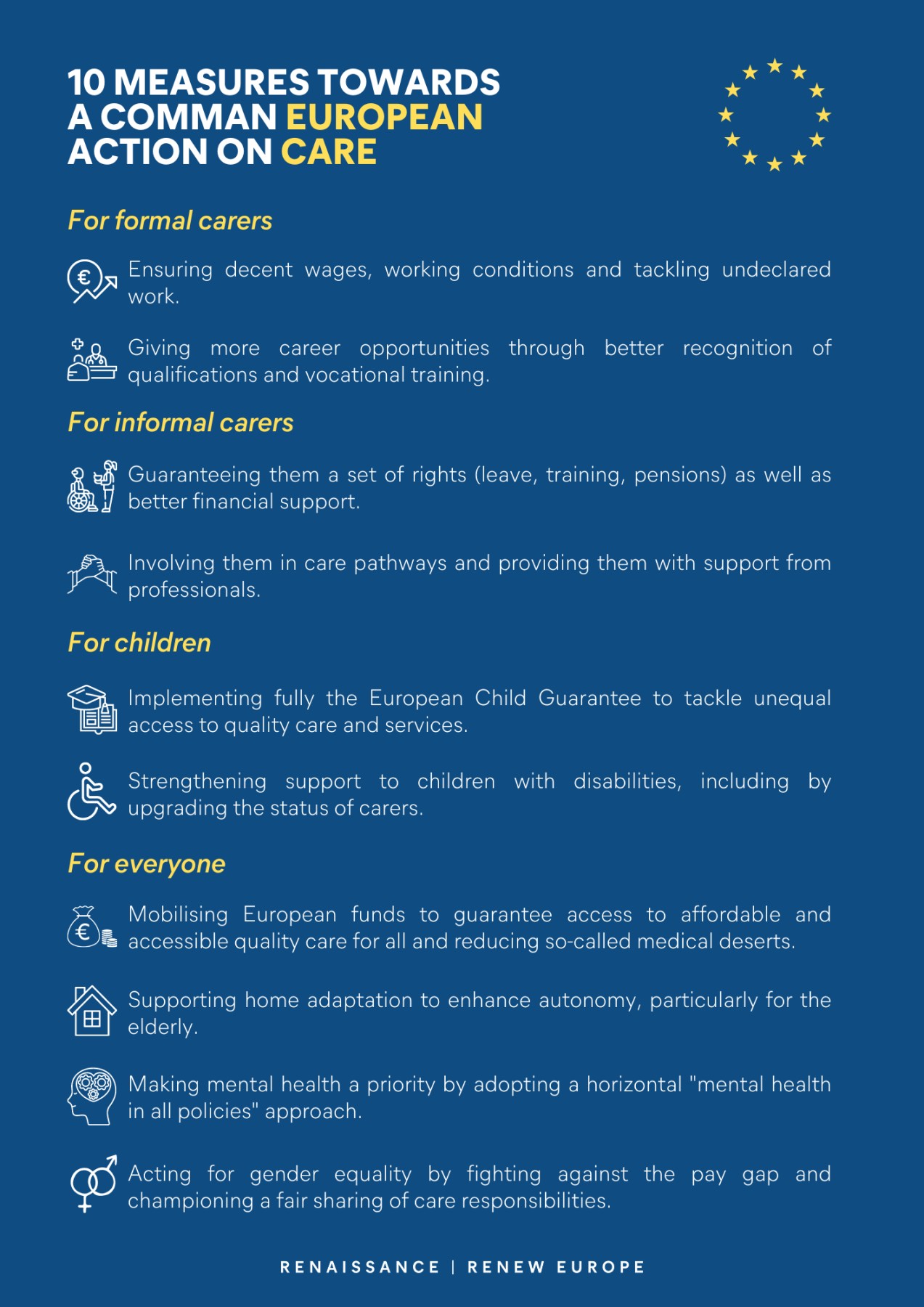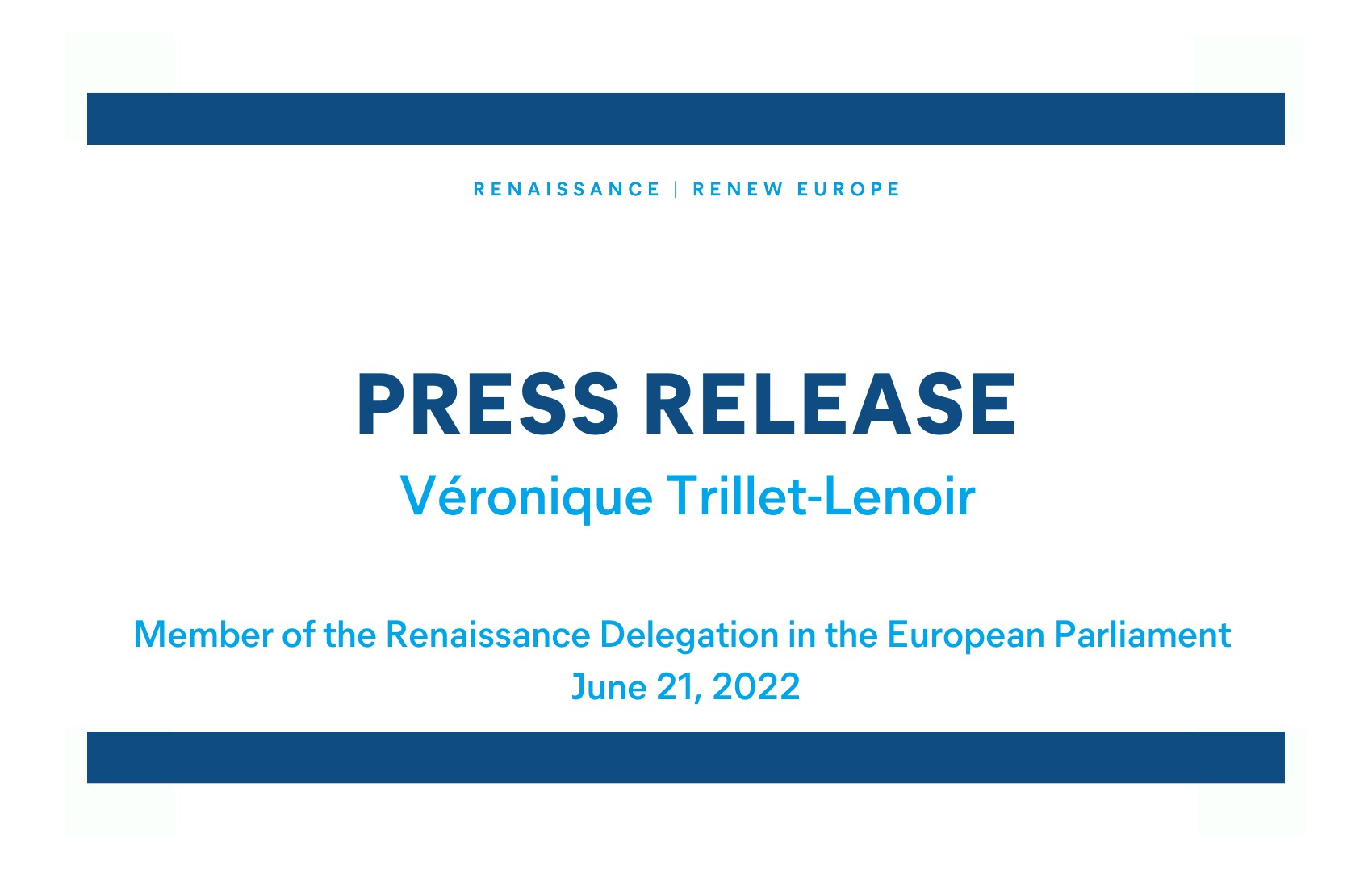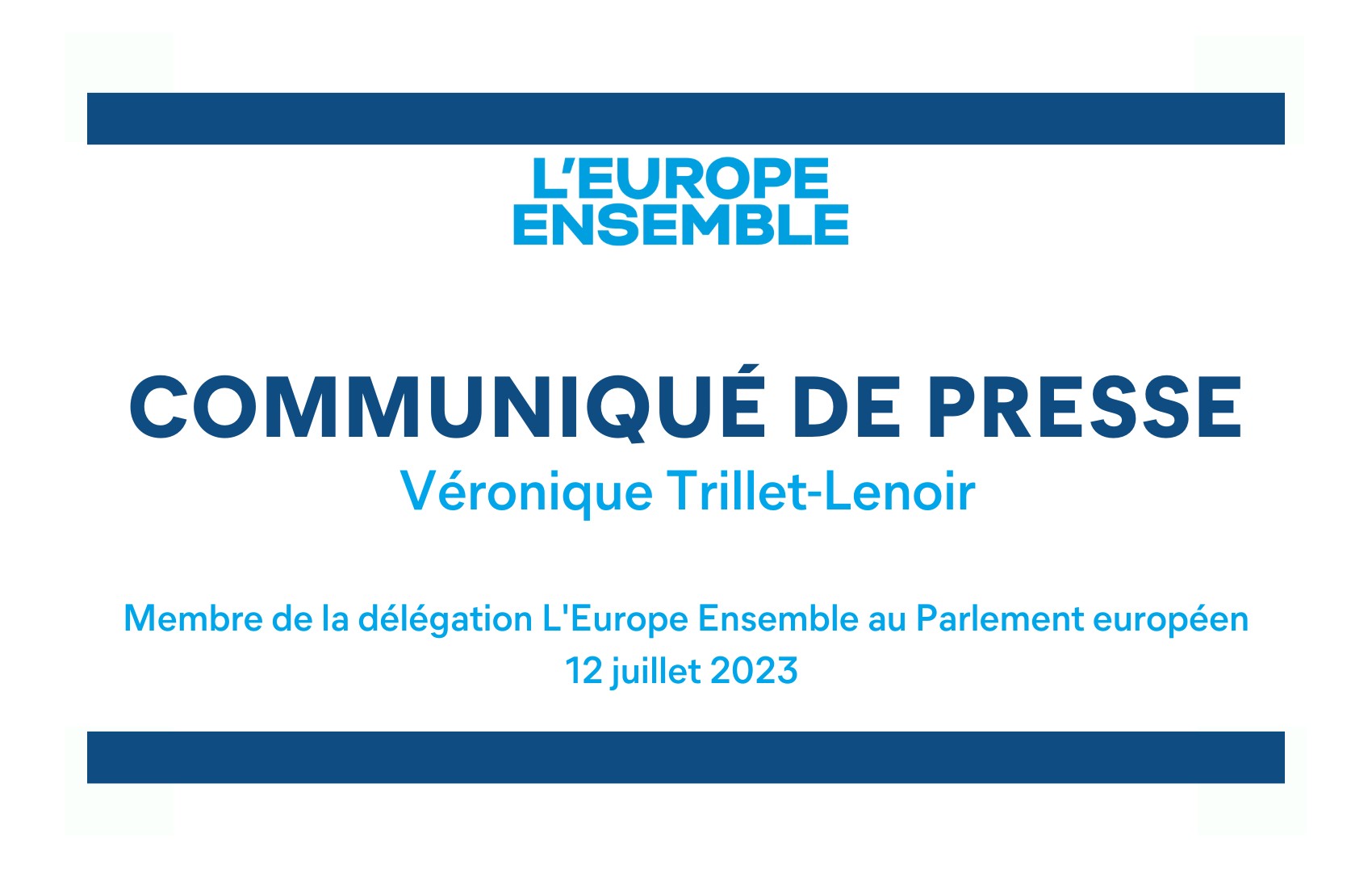The Employment and Social Affairs (EMPL) and Gender Equality (FEMM) committees have adopted by a large majority the initiative report for a common European action on care. This text is European Parliament's contribution to the care strategy announced by the President of the European Commission at the end of the summer.
With this report, the European Parliament proposes the establishment of a "Care Deal" to value the work of carers, while fighting against gender inequalities and fully implementing the European Child Guarantee. It recognises the challenges of demographic change in Europe and the need for personal care services.
Véronique Trillet-Lenoir and Susana Solis, representatives of the Renew Europe group in the negotiations, defended a set of priorities:
- Fighting against medical deserts and guaranteeing access to care in all territories, especially in rural and overseas areas. This means training and recruiting staff, increasing investment and developing digital health.
- Enhancing the value of the work of care workers by improving the attractiveness of the professions, in particular through better recognition of the experience acquired, by strengthening vocational training and, of course, by increasing wages. These measures would allow to tackle the care drain from Central and Eastern Europe to the West, a contributing factor to labour shortages in the departing regions.
- Enabling carers to focus on care rather than on administrative tasks, facilitating home adaptation and encouraging better task sharing between health professionals.
- Supporting informal carers by guaranteeing them a set of rights (leave, training, pension) as well as financial support.
- Making mental health a priority, as carers have been particularly exposed to stress and anxiety during the pandemic.
“While the Covid-19 pandemic has further exacerbated pre-existing challenges, this initiative report addresses the priorities to be taken into account and the opportunities to seize. It highlights the need to provide high quality, accessible, and affordable care services for all.” Véronique Trillet-Lenoir.




